Interview: Mark William of TECHNICOLOR DREAMS at The Green Room 42
"I always come from the actor standpoint of what story is this song telling and how can I communicate that?"
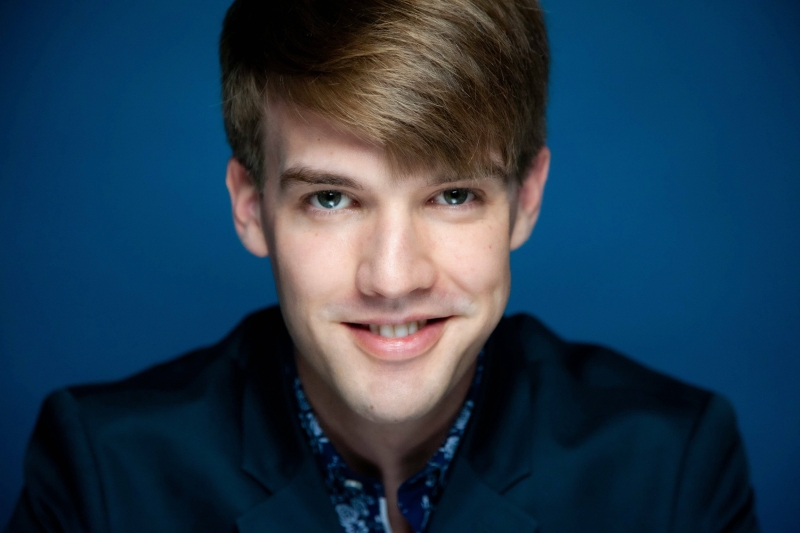 Photos by Stephen Mosher; visit the Stephen Mosher website HERE.
Photos by Stephen Mosher; visit the Stephen Mosher website HERE.
Mark William will return to The Green Room 42 on December 10th with a brand new show titled TECHNICOLOR DREAMS (Ticket link HERE.), and though it has been a minute since the two-time winner of the Broadway World Award was on stage at TGR42, it doesn't mean he hasn't been hard at work. The singer whose album COME CROON WITH ME has been a big hit since its 2019 release has been living the life of an actor, a life filled with auditions and out-of town gigs, but a life that also includes a creative process that is not foreign to many actors, that of a writer. Mark William has embarked on a journey to creat a new musical about an exciting and much-revered work of literature, and some of that music will be in this new show. It seems like Mark William has a lot of dreams toward which he is tenaciously tending, and he discusses some of those dreams in this Broadway World Cabaret interview about Sinatra, Catholic school plays, and the career path he, most definitely, was not going to take.
This interview has been edited for space and content.
Mark William, welcome to Broadway World!
Thank you.
You're one of the young crooners in the industry - there are a few of you. Where does that come from? How does one become a young person singing the Great American Songbook instead of pop songs and rock music?
I was raised on musicals from a very young age. And the genesis of the crooner thing was - when I was Albert Peterson in Bye Bye Birdie, my senior year of high school, my director gave me a CD of Sinatra and said, "This is what 'Talk To Me' needs to be." So I listened to that, and, a couple years later, my mom got me a set of three Sinatra CDs, and I rotated them, and just absorbed his style and fell in love with it. When I was talking to Preston (Director Preston Ridge) and Richie (co-Director, Richie Ridge) about putting together a nightclub act, we were talking about a few different ideas, and they came down to Florida and saw me in a cabaret, doing some crooner stuff, and saw how well the crowd reacted to it. So they said, "I think we need to do that."
Did you know that you were going to be a crooner or did you just think, "I'm going to do musical theater and maybe I'll sing in a cabaret?"
I didn't know I was going to be a crooner. I had done one cabaret on my own, very early on, unstructured, just some songs I wanted to sing. Musical theater was my reason for coming to New York.
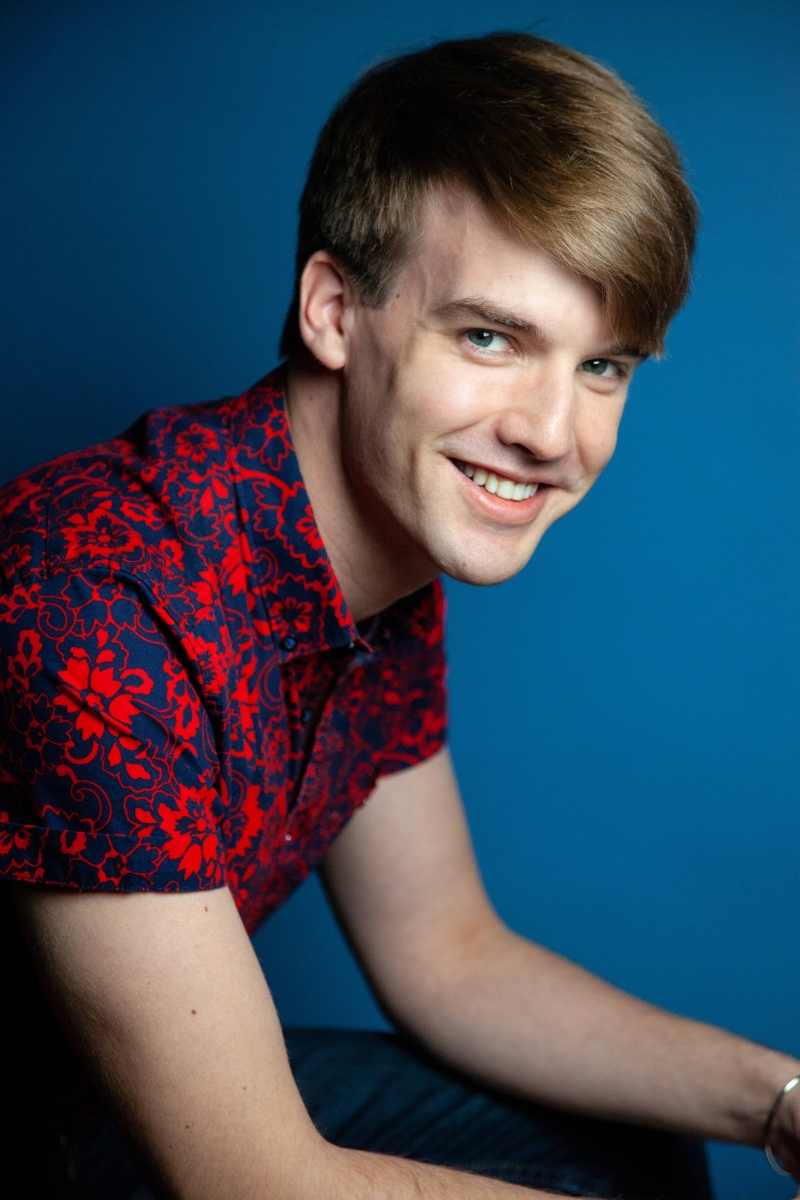
Are you still pursuing the life of an actor performing in plays and on television or on film?
Absolutely. I'm always auditioning, always. I schedule my club acts between other theatrical and TV engagements.
Do you worry about the prejudice of the industry, jockeying back and forth between mediums?
Of course - there's a lot of reckoning that's happened, especially over the past few years... and, of course, I support making everybody on an even playing field - that's what it should be. I look forward to things even-ing out a little bit and having us all have an equal shot.
And on the subject of prejudice, do you find that there's any reverse ageism when you are a young person who is an old soul singing Sinatra?
Hmmm. I haven't really ever thought about it. I don't think so 'cause I think the people who already love that music, it's exciting for them to have somebody young embrace it and do it in their own way, paying tribute to those who came before but keeping it fresh for today. I think, for younger audiences to get introduced to that music, they would prefer to see somebody who's going to have a fresh take on it. They've already heard Sinatra's version of "New York, New York" their entire life. So to hear somebody else do it would be, "Oh, that actually is a cool song. It's not just the overplayed version that we've always heard."
How do you, as an artist, approach something that is so well established as "New York, New York" or a Sinatra version of "New York, New York"? How do you find something new and fresh to bring to it?
I studied the masters, basically. I'm an auditory learner, so I've listened a lot to Sinatra, to Steve Lawrence, to Jack Jones, all kinds of different people, so I have a firm foundation of what those songs were in their original incarnations. I take that with me, but then I come in and see what can I bring to this? How do I interpret these songs particularly? I always come from the actor standpoint of what story is this song telling and how can I communicate that in the style that I'm performing in?
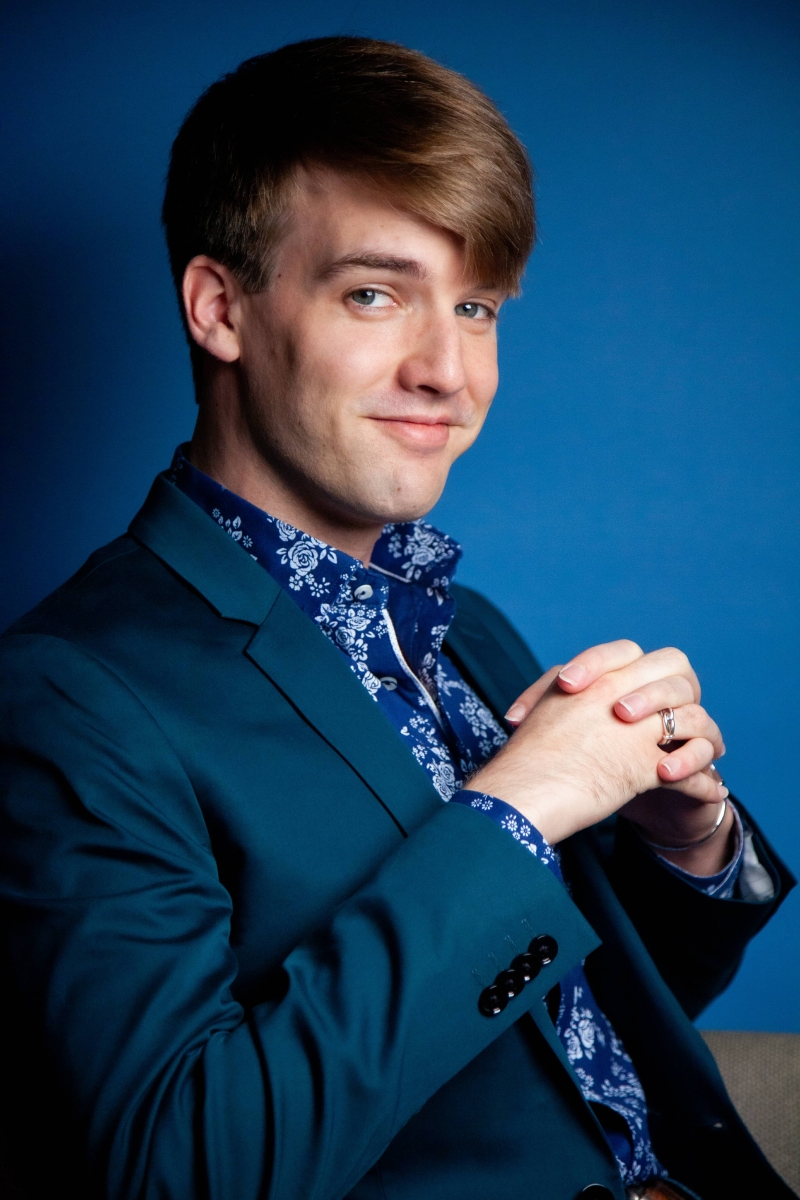
Preston directs you.
Yes.
Do you have a consistent musical director? Or do you job people in?
We try to have a consistent musical director. It doesn't always work out.
Well, they are gig workers. They, oftentimes, are not available and you just sort of have to have an open relationship.
Absolutely. I have a couple music directors who I trust a lot and usually work with.
When you're diving into the material and you're working on the subtext and the context, do you work with your musical director or Preston, or a combination of both?
It's a combination. I usually come in with my own interpretation, or the beginnings of it anyway, and mostly work with the musical director. And then Preston comes in and joins us, and it becomes kind of a three-way collaboration of what he feels is still missing, how that might be fixed with accompaniment, how I might have to change, or intensify, certain things that I'm going for, and we usually come out with the product that we like.
You mentioned your mother having given you the three Sinatra CDs.
Mm-hmm.
How were your parents with this? There are a lot of parents that find out their child wants to be a performer and they squash that. How were your parents, as mentors, when it came to your career?
Well, my mother is a pianist by trade, a music teacher, so it's always been a part of my life. And my father was very supportive of her, of me, of my sisters; they encouraged all of my musical pursuits through school and into college and everything. They were a little nervous when I was going into college. My mom kept trying to convince me - I was going to a school that's well known for pharmacy - and the whole, "You could still do your stuff, but pharmacy..." thing. I said, "Mom, I don't like science. I'm not going to spend six years studying science and then the rest of my life doing it." So they got used to the idea, and when I got into college, I started doing summer stock every summer. That kind of eased them into the idea that I could make a living at this, that I was being hired, that I could do this on a professional level. There was always some tentativeness about moving off to New York on my own, but at least they knew I had friends from school, from the summer stock and stuff, people that could support me here when I moved.
You moved here from someplace in the Midwest, right?
Ohio.
What was the entertainment community like there, growing up? Was there exposure to theater there?
There's a big touring house in Toledo, so I got to see a lot of tours, and there's quite a lot of community theater in the area. I only did one community show growing up. When I got into high school - I went to an all-boys Catholic school, so I did all the shows at my school and all the shows at an all-girls school.
Wow.
Plus one show at another all girls school... So, I got to do more musicals than most people do in their high school time. As far as professional theater in my direct area, other than the tours, there was not really any, at this point in time, but once I went off to college and had my freedom, I would drive to Dayton, drive to Cleveland, drive to Cincinnati, wherever, to go see the shows that I wanted to see. And that's how I actually first started getting exposed to plays. I'd grown up in musicals and obviously loved those, but the Human Race Theatre Company in Dayton has this wonderful theater company that does a lot of plays. And the first one I went to was God of Carnage, and I was like, this is really cool. That's not something that I had been exposed to 'cause we didn't do plays at my school. I was grateful for that.
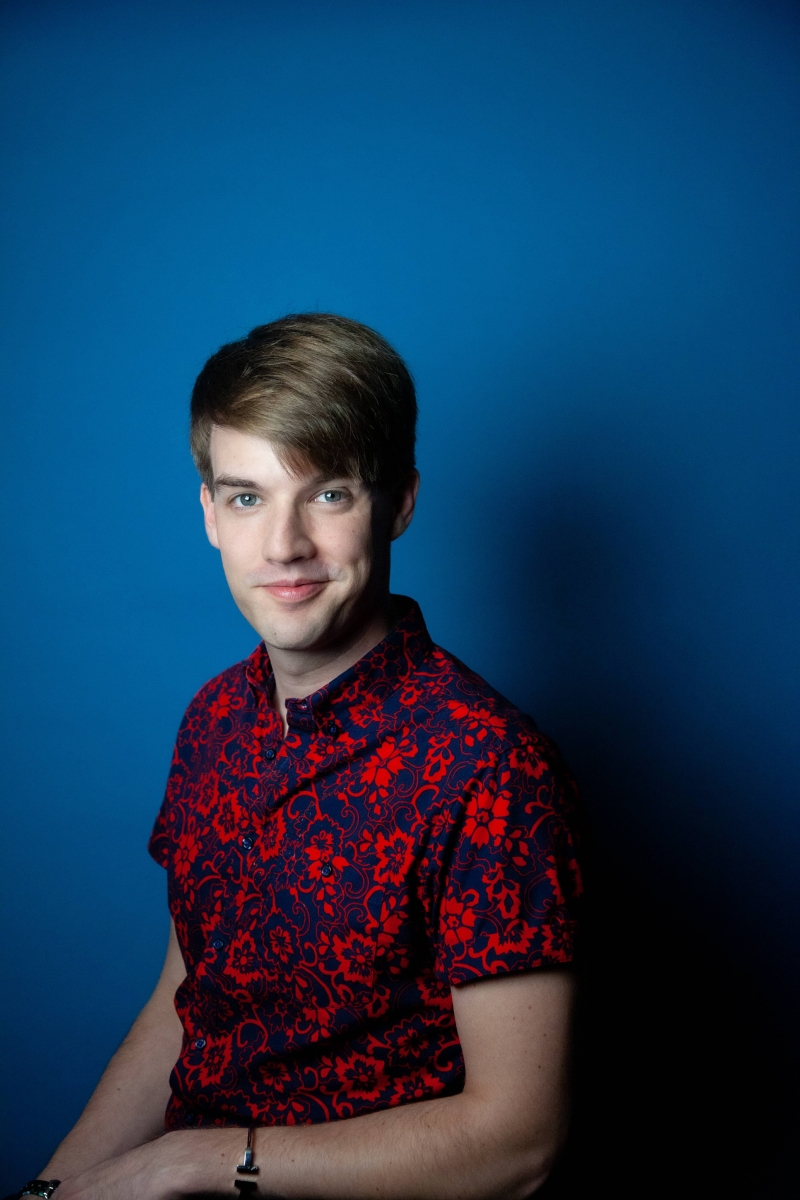
Is it fair to say that musical theater is the great passion of your life right now?
Absolutely.
Here you are doing all these musical plays in high schools while growing up...
Mm-hmm.
Where did you get your vocal training? That's an early start for a musical theater actor, was your talent something natural that you had to nurture as you went on?
I sang my first solo, "Jesus Loves Me," at five years old, and there were always people singing in my house because my mom was giving voice lessons and playing for people. I started taking voice lessons, myself, in sixth grade - we waited until the voice was developed a bit, but we knew that there was some talent there to nurture. I sang in choirs and all that kind of stuff, all through grade school, high school, college.
In what theater did you sing Jesus Loves Me?
It was at Riverside Baptist Church.
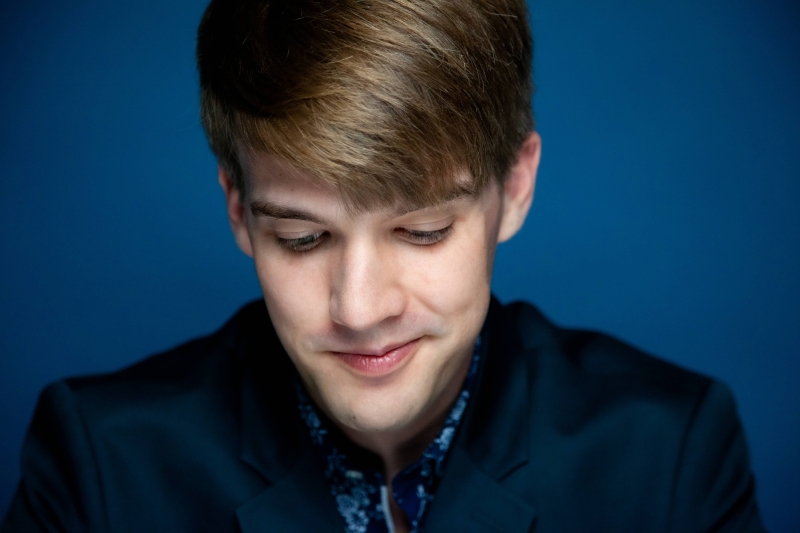
You land in New York, your parents are nervous, and all of a sudden you are doing one club act, two club acts, and now you've done four or five at this point.
Mm-hmm.
I think your next one is in December. Is it your fifth or your sixth?
Fifth.
When you sit down to create a new club act, what is your jumping off place? What's your process?
I always look at the material that I've done, and what I enjoy doing the most, what the audience seems to enjoy the most. I like to give the audience some of what they know me for and, from there, see how I can stretch a little bit. What can I push into? I sing a lot of the standards and stuff, but I've been trying to push into pop a little bit, while still maintaining my crooner viewpoint, to incorporate some of, like, Bruno Mars. I've always done a lot of Peter Allen because he's a big inspiration for me.
How did you come to find Peter Allen in your life?
I first found the cast album of Legs Diamond and fell in love with that, and when I met Preston and Richie, they were like, "He has a lot of other stuff too." I got introduced to all of his pop music and fell in love even more.
I idolized him as a teenager.
I think he's one of the pop artists who had made it big at his time, but unfortunately not a lot of people know him as well now, so I hope to carry on that mantle and spread his work more.
I know Billy Stritch has said that he tries to put a Cy Coleman song in every show he does; do you try to put a Peter Allen song in every show you do?
I think we've had him in every show but one. That's always a question on the list: what Peter Allen are we going to put in ? I connect with his material so well and I just love performing it.
You've mentioned Sinatra, you've mentioned Peter Allen. Who are the other artists that inspire you or have inspired you throughout your trajectory?
I always say Dick Van Dyke is my hero. I grew up watching the movie Bye Bye Birdie and idolizing him, so when I got to play that role, I was like, "Oh, this is so great!" I hope to play it again when I'm actually age appropriate. He's a big one. There are lots of female artists too, Judy Garland, obviously, people like Cher who have done everything under the sun.
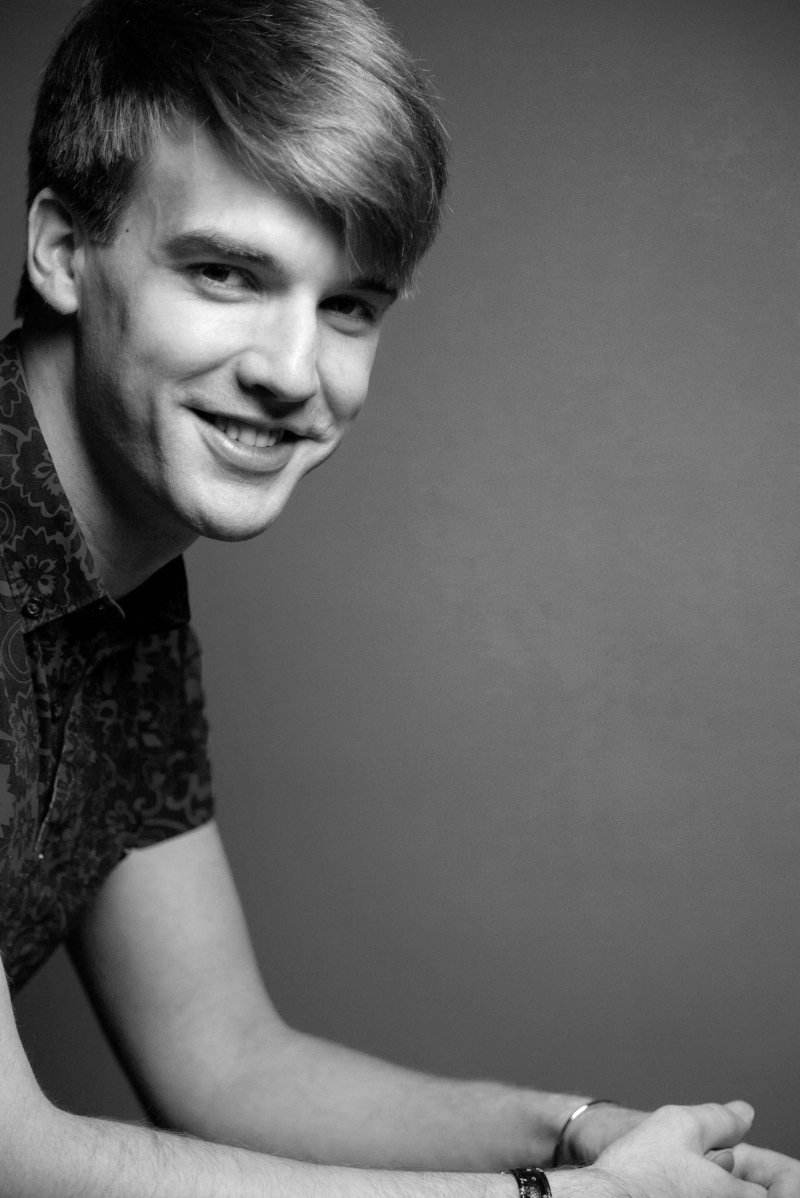
You do musicals, you do nightclub acts, you're this wonderful singer: are you a dancer as well?
Yes. Tap is my strong suit.
So you could basically be plugged into any musical in any summer stock season where you are age appropriate?
I would say so.
How's that going?
In this industry you're always auditioning, you're always looking for your next job. There are waves when it's coming really well, and other times when you know that that side of things isn't coming as easily. So we put our energy into the nightclub act and we put our energy into the musical that I'm writing and stuff like that.
A musical about?
It's a takeoff on The Picture Of Dorian Gray by Oscar Wilde.
My favorite book.
It's a great novel.
What inspired you to write a musical based on The Picture of Dorian Gray?
It was Preston's idea. When we met, he said I had an aura around me that just exuded that kind of energy that Dorian Gray exudes. We had talked about: what's a vehicle that we could put together that would be perfect for me? And he said Dorian Gray.
One assumes the Dorian Gray energy you exude is Dorian at the beginning of the story.
The eternal youth, that kind of thing. Not the ending! (Laughing)
Do you have a lot of experience writing musicals?
I've written a little bit. I wrote the score for a kid's version of a takeoff on Peter Pan called Tinker Bell. And I've worked some on my own on shows that are still in process. But this is the first time that I'm really in a room collaborating with people. Charles Abbott is the book writer and director. My friend Andrew Morrissey is our composer, for the most part. I'm doing the lyrics, for the most part. It's really been good. I'm the kind of person that needs either due dates or someone to keep me on track 'cause I can, easily, get distracted; having regular meetings and having them to answer to has made it a really great process. We've done a table read of it, we're still finishing the score, but it looks like, hopefully, we will be coming into New York in some way next year.
Will it be a traditional telling of Dorian Gray or is there some kind of an updating device?
We're setting it in 1970's New York, so the time period's a little different, and we get a little bit of disco flavor. It's not a disco musical by any means, but there's nothing wrong with the disco musical, though we don't want the endless beat of the drum.... But that flavor is fun to play with. It's exciting - I'm going to include the opening number from the show in my next nightclub act in December.
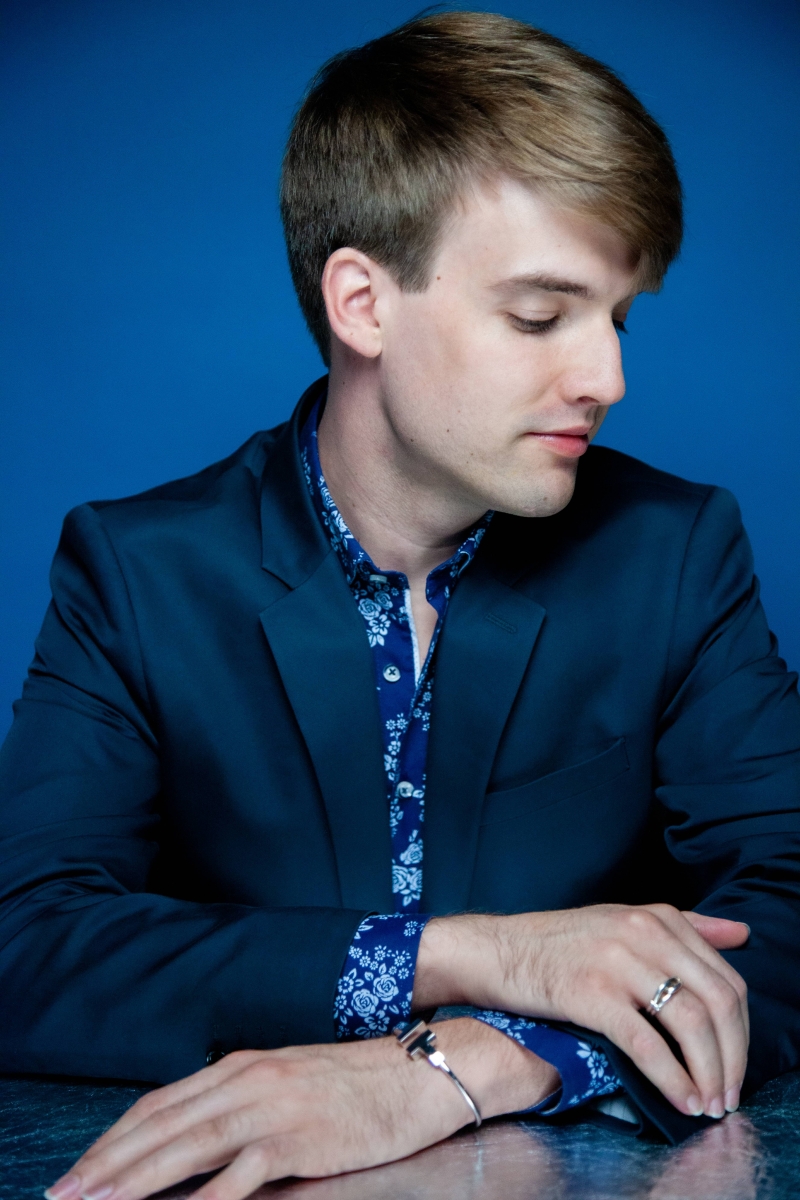
Tell me about your new show.
The new show is called Mark William Technicolor Dreams and we're going to include some of the material that everybody knows me for and loves, and we're putting in some new stuff, including that song. We have one new number that Preston has wanted me to do for quite a while and we're finally going to take a stab at it - that's a pretty iconic number, so we'll see what my version becomes.
All these shows, and all you've already done - it's a lot for your age. Do you sometimes find yourself going, Wow, I can't believe this is happening to me?
I'm very grateful for the opportunities I've been given, the support that I've been given. I'm glad - for my mom's heart - (Laughing) that things are working, and she's very supportive. She always tries to come out for my shows wherever we are, whether it's here, Indiana or Maine.
You tour with your nightclub act!
Yes.
There are a lot of cabaret artists that are trying to crack the code for how to get their show booked in the provinces. What would you advise to those people?
It's tough. I always want to have a combo behind me. Of course I can sing with a piano, but I would rather have a combo - that makes it a more expensive proposition. If you're able to go out, and if you have backing tracks, which I have for my first show, thanks to my album... but it makes it more fun with a band. It's the interaction with friends. The ways that I've gotten out there is through people that I know - a director that I've worked with became the artistic director of a theater, so we talked to her and she said, "Oh, we'd love to bring you up and to do your show up in Maine." And a connection that Preston and Richie had known for years invited me to come out to the new Feinstein's Club in Indiana last year. Talking to people and seeing where you can make those connections is the way that it's worked out for me.
I think a lot of the time artists are too afraid to ask for what they want, too afraid to call up their friend who is the artistic director and say, Hey...
Yeah
It's good that you have that, that you know how to do that, and you have a team that is there to protect you.
I learn more and more every day that networking and who you know and who knows you and your work is the key to creating a career.
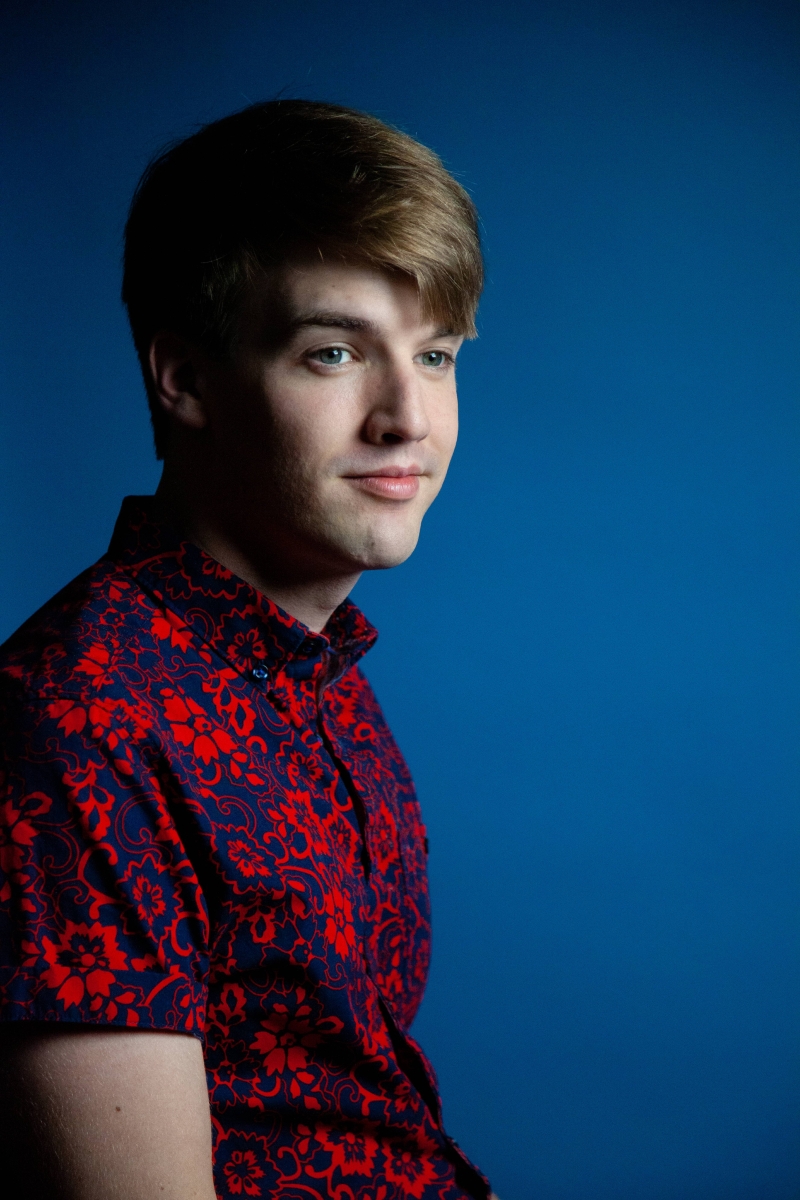
The new show is called Technicolor Dreams.
Yes.
What is your personal technicolor dream?
My dream is to be able to perform consistently - to have built up a reputation and knowledge of who I am and what I do... to the world, and to be able to share what I love with everybody else. (Laughs lightly)
Mark, thank you for chatting with us today. I look forward to seeing how your real-life dream translates to TECHNICOLOR DREAMS.
Thank you!
TECHNICOLOR DREAMS will play The Green Room 42 on December 10th at 7 pm. For reservations visit the Green Room 42 website HERE.
THIS is the Mark William website.
Comments
Videos

